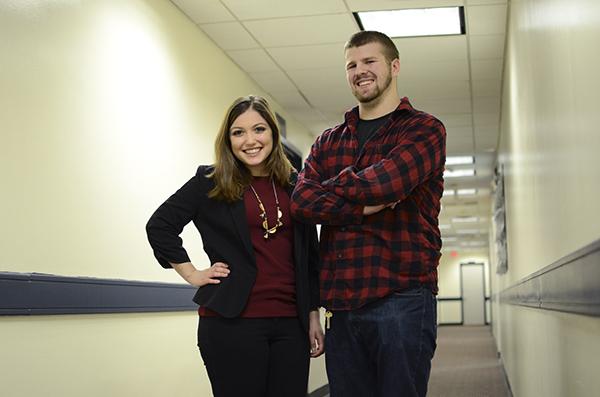GW’s top Greek life student leaders say they want sexual assault prevention and awareness training to be a top priority during meetings with a task force focused on their community this semester.
The leaders said they want to examine the issue during their meetings with chapter presidents, national sorority and fraternity representatives and other University leaders, marking a continuation of Greek discussions about sexual violence on campus.
The task force, which kicked off last week, will also meet this spring to discuss topics ranging from recruitment to philanthropy to hazing.
Dean of Student Affairs Peter Konwerski said the task force would analyze “trends across the country” and put together a list of recommendations for GW Greek Life. Konwerski added that the Center for Student Engagement, which oversees Greek life at GW, will be one of two student life departments internally reviewed this year.
“We’re excited about that because it brings in a lot of stakeholders: Student stakeholders, parents, alumni, a couple faculty and national organizations,” Konwerski said. “For them to tell us, nationally, ‘Here’s what we’re seeing as trends across the country,’ and as the president asked us to remain top in Greek experience, how do we do that? How do we keep students interested in that?”
Mollie Bowman, the president of the Panhellenic Association, said she wants chapter presidents to receive more sexual assault training, allowing them to act more like a “first responder or a peer educator.”
“It’s supposed to be a proactive measure to make sure that we are a healthy community,” Bowman said. “We’re preventing things that might happen on other campuses and that are happening around the country with the national climate of Greek life.”
She added that the task force will help Greek life at GW remain “relevant.”
“When you’re not a member of this community it’s easy to look at the isolated negative things that are happening around the country,” she said. “Greek life is a really positive experience and fosters an amazing college experience, and that’s what we’re aiming for here.”
The task force launched after University President Steven Knapp challenged the Division of Student Affairs to make GW’s Greek life “the best Greek system in the country,” Bowman added.
She said she hopes the focus on sexual assault prevention extends beyond the task force. In 2013, at least three chapters held sexual assault prevention training led by the Center for Alcohol and other Drug Education.
In September, Greek life leaders met with top safety administrators to discuss their concerns about sexual assault on campus. There have been at least five reported sexual assaults in Greek townhouses over the last two and a half years.
“We can’t have a healthy, happy community in any other way until that’s tackled,” she said.
Tim Stackhouse, the president of the Interfraternity Council, said the committee will not directly include the Division of Student Affairs and the Center for Student Engagement, though they will sit in on the meetings.
“It’s basically all the community members and the stakeholders that are going to have the voice and then deliver what we see as the solution and the plans we should take,” he said.
Director of Greek Life Christina Witkowicki said the task force will look at all aspects of Greek life on campus and “make recommendations in their final report.”
“The task force includes various stakeholders, including the Interfraternity Council, Multicultural Greek Council and Panhellenic Association, to ensure a comprehensive discussion of GW Greek Life so that students continue to have positive and meaningful experiences,” she said in an email.
Stackhouse said he’d also like to see the task force focus on changing “a culture of alcohol” on campus.
“All student organizations have problems with that,” he said. “We’re the one’s currently being proactive and taking a stance against it, so I think that will be something that is talked about greatly.”







